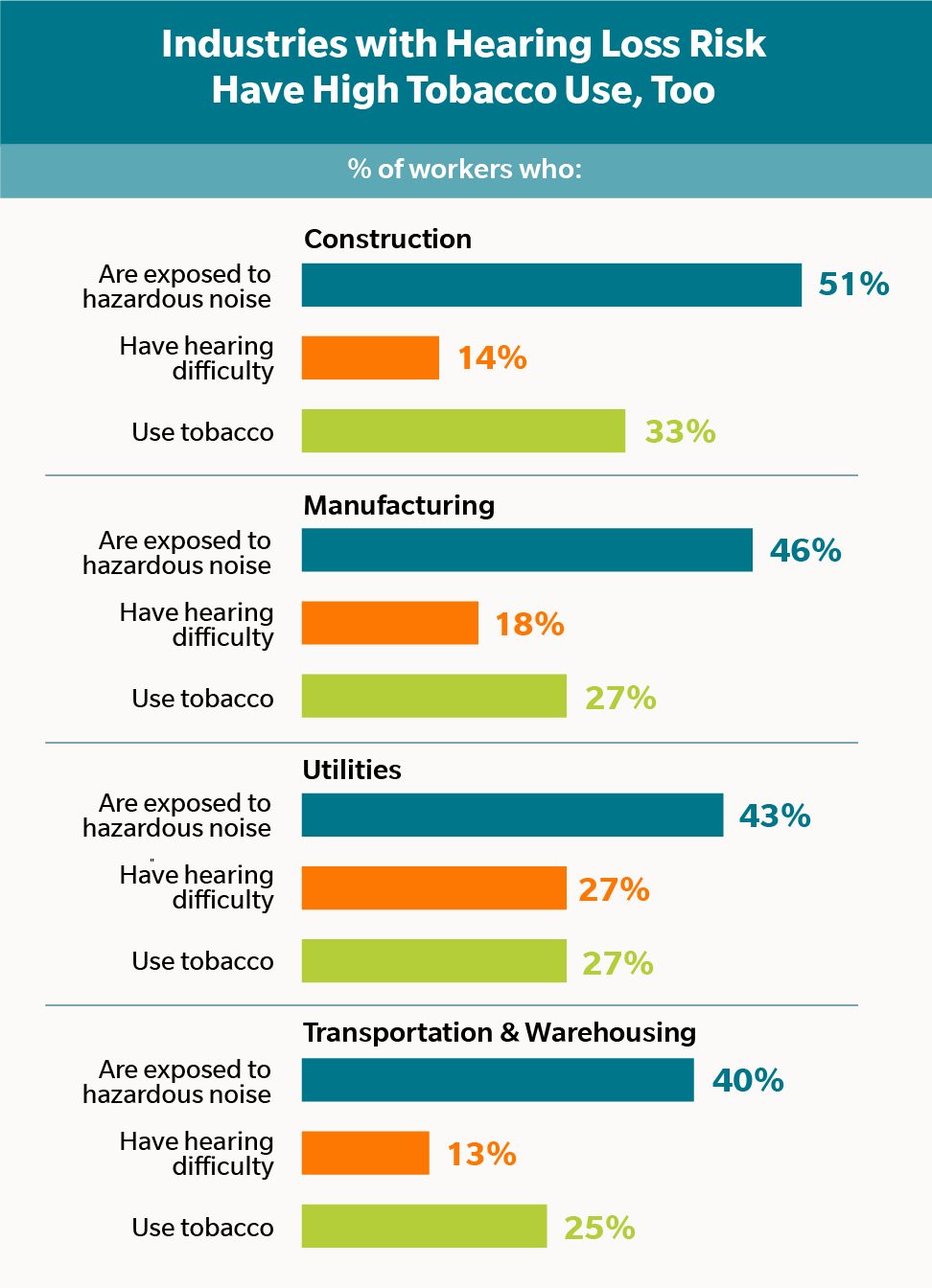Many health risks of smoking are well-known, such as increased risk for cancer, heart disease, and lung disease. But there are lesser-known effects of smoking that can lead to significant costs for employers, too.
Here’s a major example: hearing loss.
Links Between Smoking and Hearing Loss
It may seem strange that smoking could be connected to hearing loss, but numerous studies confirm there’s a link. For example:
- A study of over 8,500 people regularly exposed to occupational noise found a significant association between smoking and hearing loss even after controlling for potential confounding variables.
- Similar results were reported in a study of nearly 165,000 adults between the ages of 40 and 69 in the UK. Notably, the study also found that passive smokers—those who involuntarily inhale smoke from other people’s cigarettes, cigars, or pipes—were also at significant risk of hearing loss.
Researchers don’t yet know why smoking and hearing loss are linked. There is some speculation that it could be the indirect effect of smoking on blood vessels or the direct effect of the toxins in cigarette smoke.
Impact of Hearing Loss in the Workplace
Think hearing loss only occurs among seniors? Think again.
About 37 million people in the U.S. have hearing loss. In fact, hearing loss is the third most common chronic physical condition in the U.S. and is TWICE as prevalent as diabetes or cancer.
Occupational hearing loss is a known risk in industries such as manufacturing and construction, where about half of all workers are exposed to hazardous noise. Unfortunately, many of these same industries with hearing loss risk also tend to have higher rates of tobacco use.
Each year, hearing loss costs businesses an estimated $242 million in workers’ compensation. Occupational hearing loss can also decrease employee productivity and increase safety risks.
To reduce the impact of hearing loss on your company’s bottom line, helping smokers quit needs to be a top priority.
Prevent Hearing Loss by Quitting Tobacco
Unfortunately, quitting can’t improve hearing once it’s lost—in other words, someone won’t regain their auditory function once they stop smoking. That’s why addressing tobacco use before it leads to hearing problems is crucial.
The good news is that the excess risk of hearing loss associated with smoking disappears relatively quickly after quitting.
Another key point: Smoking cessation will stop exposure to secondhand smoke for an individual’s family members, reducing the risk of hearing loss from passive smoking.
How You Can Help
At the EX Program by Truth Initiative, we closely partner with employers to engage individuals in quitting smoking, vaping, and nicotine.
Our expert member marketing team develops a promotional plan tailored to your organization. See more about how this works, see our blog The Secret Sauce for High Member Engagement in Tobacco Cessation.
Once individuals enroll, we deliver evidence-based, proven, and compassionate support for your employees—and comprehensive real-time dashboard reporting to track your organization’s progress with helping individuals quit tobacco for good.
To learn more about how we partner with employers, please visit our Employers page. Or complete a Contact Us to start a conversation today.





